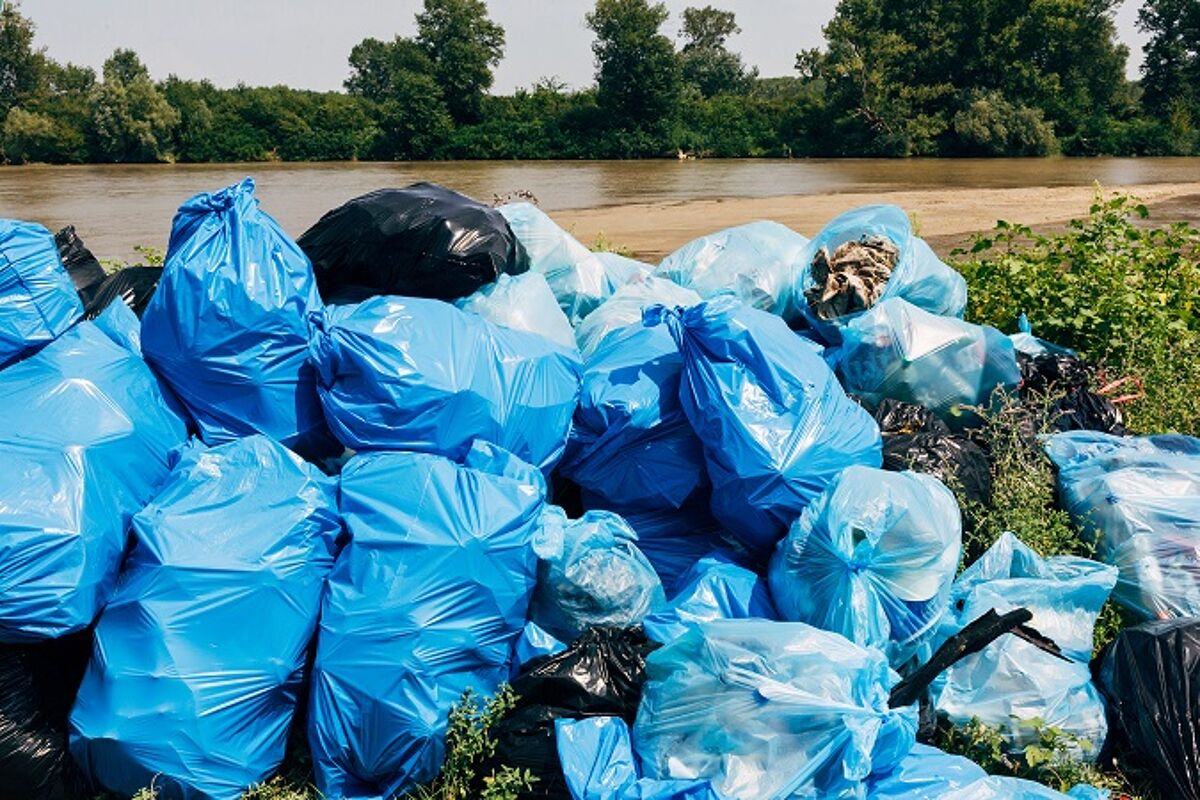Environmental crime
Our environment is one of the most valuable resources we have, with rural communities in particular relying on it for business, farming and tourism.
Organised criminals attack rural environments in a variety of ways, from large scale illegal dumping to heritage crime, having detrimental impacts on surrounding wildlife, livestock and communities.
Do you have information on a suspected environmental crime and want to remain anonymous? Tell us what you know online or call 0800 555 111:
If you have information about a crime, use the free what3words app to report the exact location of the incident.
You can either copy and paste the three words into our rural crime form, or call 0800 555 111 and share them with one of our Call Agents when you are giving information anonymously.
In an emergency, always call 999 - you can also use what3words to tell the police operator exactly where to send help.
Learn more about environmental crimes which affect rural communities:
including arson, heritage crime, serious and organised waste crime and fly-tipping.
According to the National Fire Chiefs Council, arson continues to be the largest single cause of fire attended by Fire and Rescue Services in the UK.
Not only does it put people’s lives in danger, but it can have devastating long-term consequences for livelihoods; 86% of businesses that have a fire never recover. Rural properties and farms are particularly vulnerable to this crime due to their isolated locations and flammable supplies of hay and straw.
Do you suspect someone of being an arsonist? There are many reasons why someone may start a deliberate fire. For example, to burn illegal fly tipping rubbish, revenge, boredom, an insurance claim - they could even be suffering from pyromania, too. No matter the reason, if you think someone is intentionally starting fires, they are at risk of endangering themselves and others.
- In an emergency, always call 999 - otherwise call the police on 101.
- If you wish to remain anonymous, tell us what you know about suspected arsonists by calling 0800 555 111 or use our online form.
- If you’ve been a victim of arson and you’re looking for further support, contact Victim Support.
The cost to rural communities of heritage crime is enormous, not just in monetary value and loss of tourism but in social costs – this crime could deny future generations the opportunity to enjoy UK heritage.
- Listed buildings.
- Scheduled monuments.
- Protected marine wreck sites.
- Registered Battlefields.
- Registered Parks and Gardens.
- Conservation areas.
- Protected military remains of aircraft and vessels of historic interest.
- World Heritage Sites.
- Undesignated but acknowledged heritage buildings and sites.
- Architectural theft - in particular metal and stone.
- Criminal damage - in particular damage caused by fire.
- Unlawful metal detecting (also known as ‘nighthawking’).
- Unlawful disturbance and salvage of maritime sites.
- Unauthorised works to heritage assets.
- Illicit trade in cultural objects.
In an emergency, always call 999.
An emergency is:
- when a crime is in progress.
- someone is suspected of a crime is nearby.
- there is danger to life or property.
- violence is being used or threatened.
Call 101 to report crime that do not require an emergency response, such as:
- When property has been stolen or damaged and the suspect is no longer at the scene.
- If you suspect unlawful metal detecting is happening in your neighborhood.
- To give the police information about crime or anti-social behaviour in your area.
If you have information about those behind heritage crime and you want to remain anonymous, tell us what you know by calling 0800 555 111 or using our online form.
The Heritage Crime Prevention Measures guidance booklet for the owner or manager of a historic place by Historic England.
More prevention advice can be found on Historic England’s website.
Serious and organised waste crime
Waste crime takes many different forms, including large scale dumping, illegal waste sites, illegal burning of waste, mis-description of waste to avoid fees and landfill taxes, and illegal export of waste.
Much waste crime is carried out by gangs and individuals who operate bogus waste services, accepting payment for disposal without having the necessary permits for transportation or storage.
Waste crime causes significant harm to businesses, local communities and the environment through polluting rivers and drinking water supplies. It is estimated to cost England's economy £1 billion every year.
Criminal gangs behind large-scale waste crime often use it as a cover for other serious illegal activities, such as money laundering and modern day slavery.
Often the criminals behind it are hard to identify as they typically pose as legitimate businesses.
If you are booking a waste collection, ensure you:
- Check the people taking away your rubbish are a registered waste carriers. Ideally they should have a copy of their registration documents on them - ask to see these. You can check their business name or registration number on the Environment Agency website, or call 03708 506506.
- Get a written receipt/transfer note showing their contact details, a description of your waste and details of where they are taking it.
- Note down the make, colour and registration number of the vehicle that’s taking your waste away.
- Check the waste management supplier to ensure they are authorised to deal with waste. You can check their business name or registration number on the Environment Agency website - Public Register.
- Check that waste transfer documentation accurately describes your waste.
- Ask the waste firm for evidence that they are authorised to store/treat the waste and where it is going.
Illegally dumping waste is a lucrative business for criminal organisations, and warehouses or derelict sites are a prime target to mask this activity. Serious and organised waste crime is on the rise, and often on an industrial scale.
We encourage landowners to carry out proper checks on prospective tenants and stay vigilant for suspected criminal activity, as ultimately the burden and cost of clearing waste will fall on the owner.
You could face a fine of up to £400 for using an unregistered waste carrier to dispose of your waste.
Those convicted of serious waste crime offences could receive an unlimited fine and/or a term of imprisonment.
If you suspect an individual or company is committing a waste crime, tell us what you know, by calling 0800 555 111 or using our online form. You’ll stay 100% anonymous. Always.
For example, you may suspect someone of being involved with:
- Large scale dumping of waste (such as a tipper truck dumping over 20 tonnes of waste).
- Illegal waste sites.
- Misdescription of waste, to avoid fees and landfill taxes.
- Illegal export of waste.
- Serious and intentional waste permit breaches.
- Illegal burning of waste.
Fly-tipping
Fly-tipping is illegal dumping of liquid or solid waste on land or in water and is dealt with by your local council. Crimestoppers can only take information on serious and organised waste crime.
Topping the list of most common crimes experienced by those who live or work in the countryside, fly-tipping poses a significant threat to farm animals, wildlife, soil quality, watercourses and the natural environment.
It can also attract pests and present a range of different health hazards for local residents and passers-by.
In addition, the financial costs of fly-tipping are particularly stark, with business owners facing an average clean-up bill of over £1,000 each time. In fact the National Fly Tipping Prevention Group chaired by DEFRA, estimate that fly-tipping on private land costs £50m to £150 million to clear up each year.
Alert your local council about any waste that is, or has been, dumped illegally.
Help them deal with the problem quickly by telling them:
- The exact location where the fly-tip is.
- The type of waste.
- The amount.
- The day, date and time the fly-tipping happened/it appeared.
Or report fly-tipping online through ClearWaste.com
Crimestoppers can only take information on serious and organised waste crime.
Help keep your community free from litter and fly-tipping waste - visit keepbritaintidy.org to learn what more you can do to educate your community.

Give information
Give information anonymously by phone on 0800 555 111 or online

Donate to us
Join our fight against crime by making us a donation today, and see how the money you give can help shape your community for the better.

Fearless - our youth service
Find out about Fearless, Crimestoppers' youth service for 11-17 year olds.

